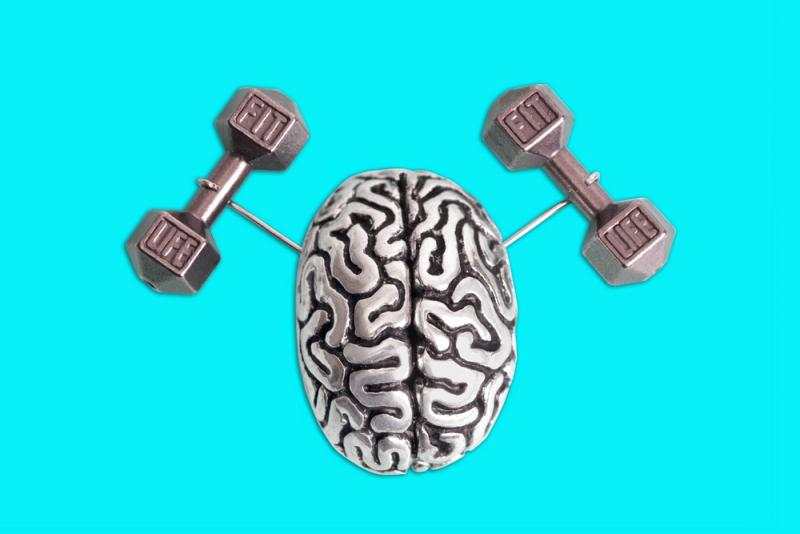Exercising regularly, filling your plate with nutritious foods, and other strategies can not only ease your symptoms, but they can help your treatment work better, too.
Alongside treatments like talk therapy and medication, lifestyle management strategies — including self-care — can help people with anxiety disorders feel better. Self-care is any activity that helps you keep up your mental and physical well-being.
In general, a solid self-care routine can help you curb stress, lower your risk of illness, and boost your energy.
For anxiety disorders in particular, self-care can actually help make your treatment more effective.
“Self-care is crucial for individuals with anxiety disorders as it serves as a fundamental tool to manage and alleviate symptoms,” says Joel Frank, PsyD, a clinical psychologist in private practice in Los Angeles.
Here are six expert-backed self-care activities that can help keep your anxiety symptoms at bay.
1. Exercise Regularly
It’s well-known that exercise can do a lot of good for both physical and mental health — and anxiety is no exception. “Exercise and physical activity can be powerful tools for treating anxiety,” says Dr. Frank.
Research backs this up. One study showed that regular exercise may help improve symptoms among people with generalized anxiety disorder or panic disorder, with more intense exercise having the most benefits.
As for which types of exercises are best for managing anxiety, it depends on what activities you enjoy most, says Frank. “If an individual enjoys yoga or running, then those activities would promote endorphin release to help regulate mood and can expel the physical energy associated with anxiety,” he says.
Guidelines recommend U.S. adults get at least 150 minutes of moderate-intensity aerobic exercise or 75 minutes of vigorous aerobic exercise each week. If that sounds overwhelming, try starting smaller. Even small amounts of exercise — think 10- to 15-minute periods at a time — can help.
2. Eat a Nutritious Diet
“Eating a nutritious and balanced diet can have a profound effect on mental health,” says Caroline Fenkel, DSW, a licensed clinical social worker and co-founder and chief clinical officer at Charlie Health, a virtual mental health care practice for young people that offers treatment for anxiety and related mental health conditions.
While diet can’t cure anxiety, eating certain foods can help you feel better, while others can aggravate your symptoms. Prioritize whole foods like fruits, vegetables, lean protein, and whole grains, and limit your intake of processed, packaged, and fried foods.
People with anxiety should also be mindful of their caffeine and refined sugar intake. “It’s important to avoid excessive caffeine and sugar, as they can exacerbate anxiety symptoms,” Dr. Fenkel adds.
3. Try Meditation
Meditation — especially mindfulness meditation — is a tried-and-true relaxation strategy that can help you focus your mind and ground yourself in the present moment. With practice, it can gradually help reduce the tendency to worry excessively about the past or future, according to Frank.
“Simple practices like guided meditation sessions or breathing exercises can be incredibly effective,” he says.
Some ways to practice mindfulness and meditation:
- Find a quiet place to meditate.
- Sit or lie down in a comfortable position.
- Focus your attention on an object, an image, or your own breathing. When you get distracted, gently redirect your attention back to meditating.
- Take slow, deep, and evenly spaced breaths.
- Have an open attitude, allowing your thoughts to pass through your mind without judging them.
4. Shore Up Your Sleep Routine
Sleep is important for everyone, but getting high-quality shut-eye can be challenging if you have an anxiety disorder. Nearly half of people with anxiety have sleep problems, especially insomnia, or difficulty falling asleep and staying asleep.
That’s because those with anxiety disorders are more prone to sleep reactivity. That means they’re more likely to have sleep problems due to being in a constant state of stress and mental hyperarousal.
This can become a persistent problem if not properly addressed. “Anxiety can disrupt sleep, but lack of sleep can also worsen anxiety, creating a vicious cycle,” says Fenkel.
A few ways to boost your odds of getting a good night’s sleep every night are:
- Set a sleep schedule and stick to it. Waking up and going to bed at the same time each day can help regulate your body’s internal clock.
- Avoid caffeine and alcohol in the evening, as these substances can keep you wide awake at night.
- Make sure your sleep space is cool, dark, and quiet. Disruptions like light and noise can make it difficult to drift into dreamland.
- Try relaxation exercises like deep breathing or meditation to help calm your mind and body before bed.
If these strategies don’t help, tell your doctor about the symptoms you’re experiencing. They can recommend professional treatments to help you sleep better.
5. Spend Time With Others
Building and maintaining strong social connections is vital for mental health, says Fenkel.
“Talking to friends, family, or a therapist can provide support and reduce feelings of isolation,” she says. “Engaging in social activities can also distract from anxious thoughts and foster a sense of belonging and purpose.”
Reach out to others regularly, either for support when you need it or simply to spend time with them. If you need help strengthening your support system, some tips that can help include:
- Look to develop friendships with multiple trustworthy people who you can count on for different things. For instance, you might have one friend who you can talk to about issues at work, or another who can listen when you’re having challenges with your kids.
- Proactively reach out to others rather than waiting for them to reach out to you, and offer support to them as well when they need it. If you’re there for your loved ones, they’re more likely to be there for you, too, when you need them.
- Make use of technology, which can allow you to connect to virtually anyone, anywhere. If you’re not able to see a loved one face-to-face, send them a text or schedule a time to video chat.
- Connect with people who have similar interests to yours. Do you love reading, hiking, or tennis, for instance? Consider joining a local club, meetup, or another organization to connect with others who are interested in the same things.
6. Make Time for Your Favorite Hobbies
Engaging in your favorite pastimes can be very beneficial for managing anxiety, says Frank.
“Participating in hobbies that bring satisfaction and joy can serve as a distraction from anxious thoughts,” he says. “Whether it’s painting or gardening, hobbies provide creative outlets and a sense of fulfillment.”
The Takeaway
Including self-care in your treatment plan can be very helpful for managing an anxiety disorder. When done alongside standard treatments like talk therapy or medication, strategies like regular exercise, a nutritious diet, meditation, prioritizing your sleep routine, and making time for hobbies can play a key role in easing symptoms.


